Home Is Where the Heart Is
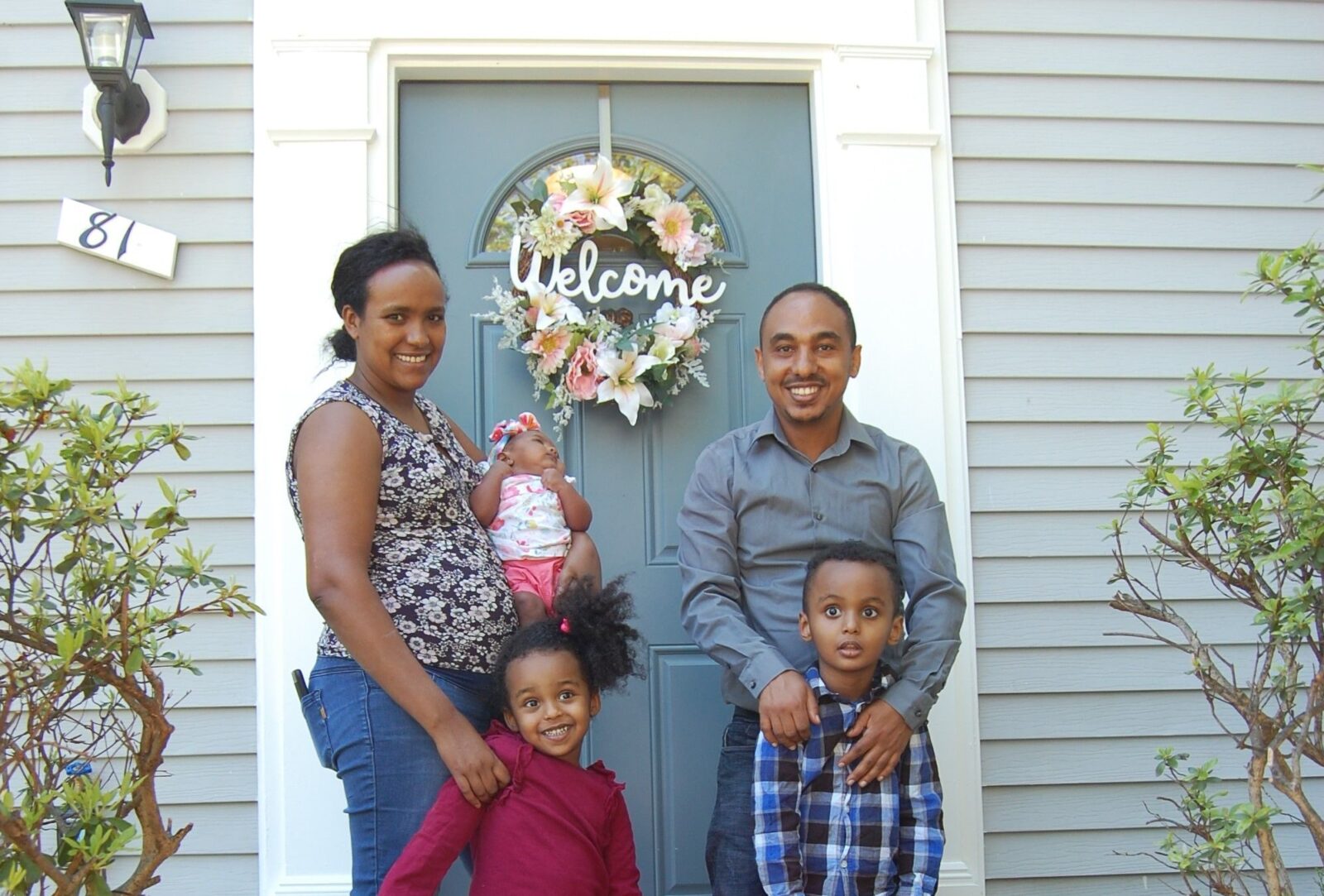
A look into Loudoun and Fauquier’s Habitat for Humanity
Written by Laticia Headings | Photos courtesy of Loudoun & Fauquier Habitat for Humanity
Both Loudoun and Fauquier counties are known for their pastoral beauty, considerable affluence, and robust equestrian and agricultural industries that help drive the economy. What residents may not realize is that there is an affordable housing crisis in their own backyard.
The affordable housing problem isn’t centralized to one state or a particular zip code. According to a Harvard University study, nearly a third of U.S. households (38.1 million) paid more than 30 percent of their annual income for housing in 2016.
In Fauquier County, 31 percent of households fall into the United Way ALICE (Asset Limited, Income Constrained, Employed) Report threshold. These households are working but struggling to cover the costs of basic living. Habitat for Humanity serves families with incomes between 30-70 percent of the average median income, which in Fauquier is $94,347.
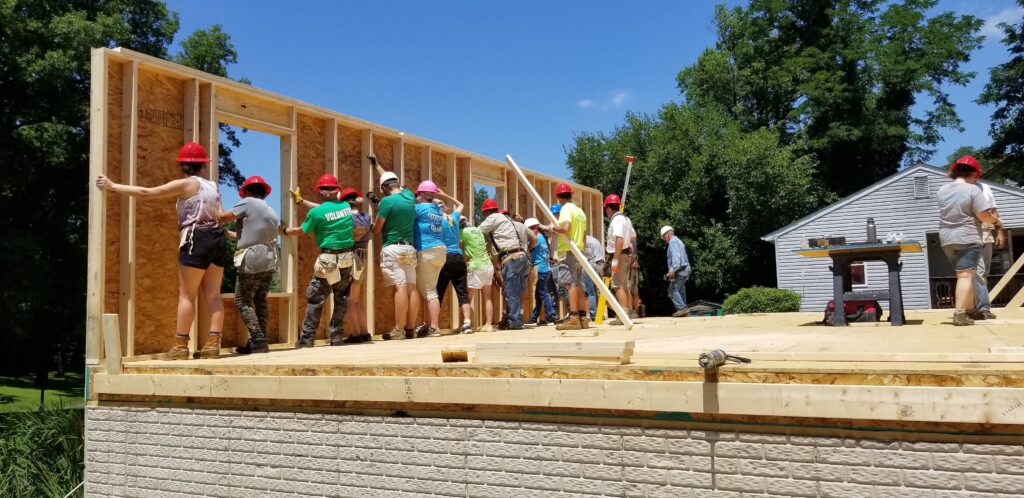
116 Haiti Street in Warrenton. Building and raising walls.
“For example, the Town of Marshall has a total number of 604 households,” says Melanie Burch, the associate director of development for Fauquier Habitat, “Marshall is incredibly rich, but 57 percent of the people who live in the Town of Marshall fall within the ALICE and poverty rate. People are just barely making it.”
Fauquier, a county with less than 70,000 people, has a wide range of incomes. “You have people who are at the lower end of the income spectrum and a number of people at the higher end of the income spectrum and that inflates our overall median income which often misrepresents the needs in our community,” says Darryl Neher, CEO of Fauquier Habitat.
“It’s a very weird dichotomy,” remarks Burch, “We all love the hunt country, we love the jewel that is this area…but at the end of the day, we still have to have viable, good, safe housing so we can end this consistent strain in our community. People don’t realize that there are a lot of hard-working people who are struggling every single day to pay their rent or put food on the table.”
In Loudoun County, four in 100 families, or approximately 13,593 people, live at or below the federal poverty level. Twenty-six thousand children live below the ALICE Survival Budget threshold.
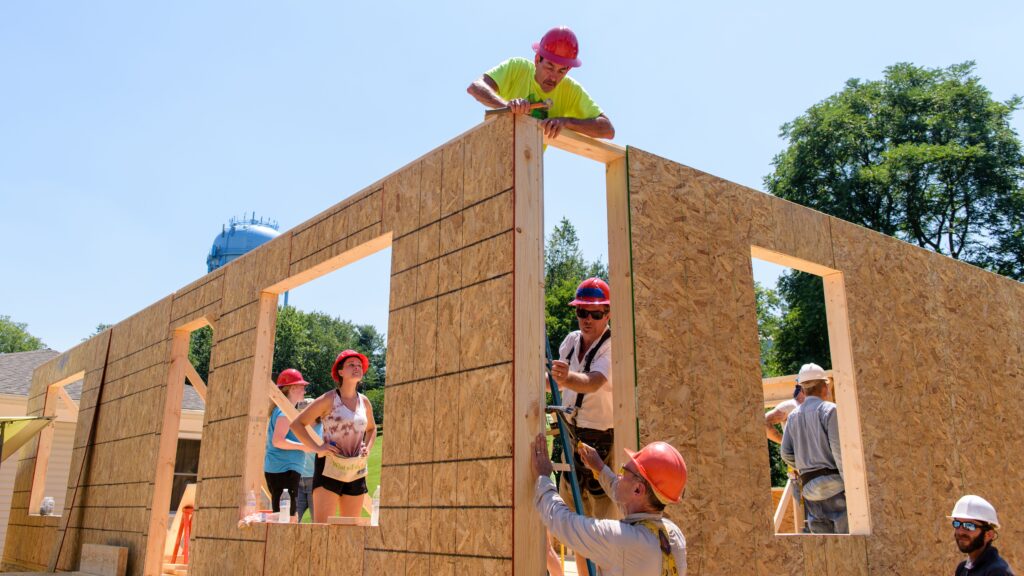
“Loudoun is very different from other places,” says Kari Murphy, director of resource development for Loudoun Habitat, “We have more of an urban landscape to the east…and then you go further west and south and it’s gorgeous rural communities.”
Two of the most common housing problems in Loudoun are overcrowding and constant relocation. “We may have three to four couples or families sharing a townhouse just to afford housing,” says Murphy, or “find that families are moving many times just to find rents that are affordable.”
Both Loudoun Habitat and Fauquier Habitat, which includes Rappahannock County’s 7,373 residents, raise local funds to help local families. Each has dedicated 55 homes to families in need in their counties. In addition to building new houses, Habitat also rehabs and renovates homes to add to its inventory.
“It’s a hand up, not a hand out,” says Murphy “The [Habitat for Humanity] mission of ‘bringing people together to build homes, communities and hope’ is so important.”
Founded in 1976, Habitat for Humanity International has 1100 affiliates in 40 countries and helped more than 29 million people build or improve the place they call home. Each affiliate has unique policies and challenges based on geographical location and population demographics.
“Homes aren’t given away. That’s a huge myth that people assume about Habitat homeowners,” Murphy emphasizes.
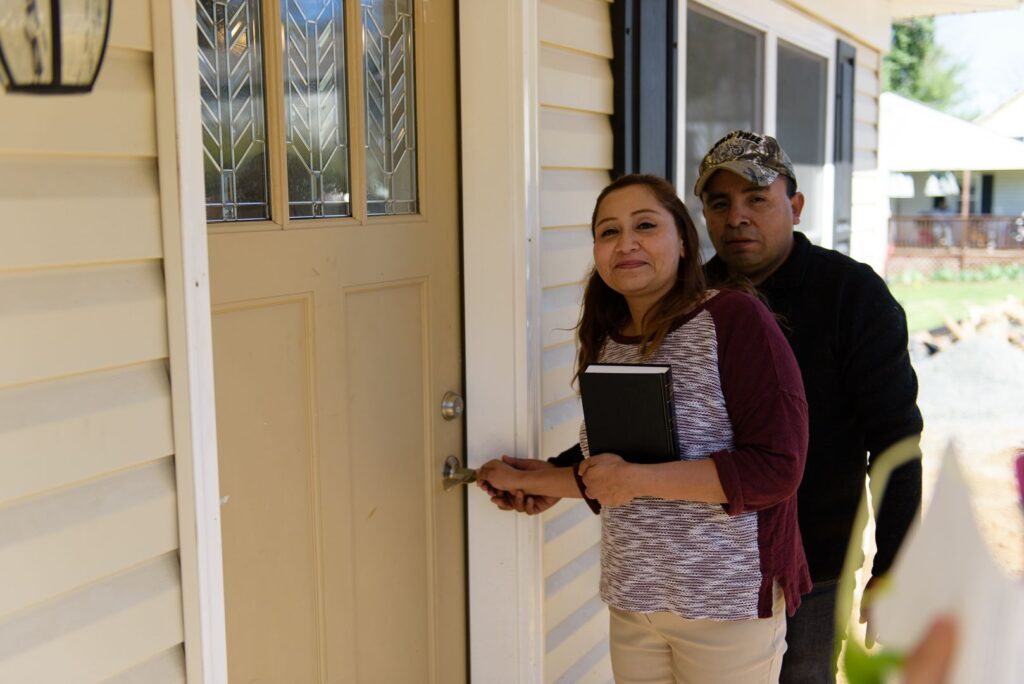
The home dedication of 110 Haiti Street. The Habitat homeowners are Carolina and Ramon Navarette. Both still volunteer regularly on every build and event and Carolina is on our Board of Directors.
In addition to having stable credit, homeowners are required to take financial courses and must be willing to partner with Habitat. They pay a mortgage that is either 0 percent or very low interest and perform “sweat equity” hours as part of their down payment: 300 hours for a two-person household and 200 hours for a single household. Kids can also get sweat equity hours for good grades.
“We are here to set people up for success,” Murphy continues, “We educate on budgeting, saving, what is a mortgage, mortgage insurance, all those things…even take them on tours through home improvement stores.”
Loudoun Habitat, founded in 1993, has created the “Tools for Life” Learning Center, offering classes and resource material to Habitat homeowners and the general public. Webinars on a wide range of topics are currently being held virtually.
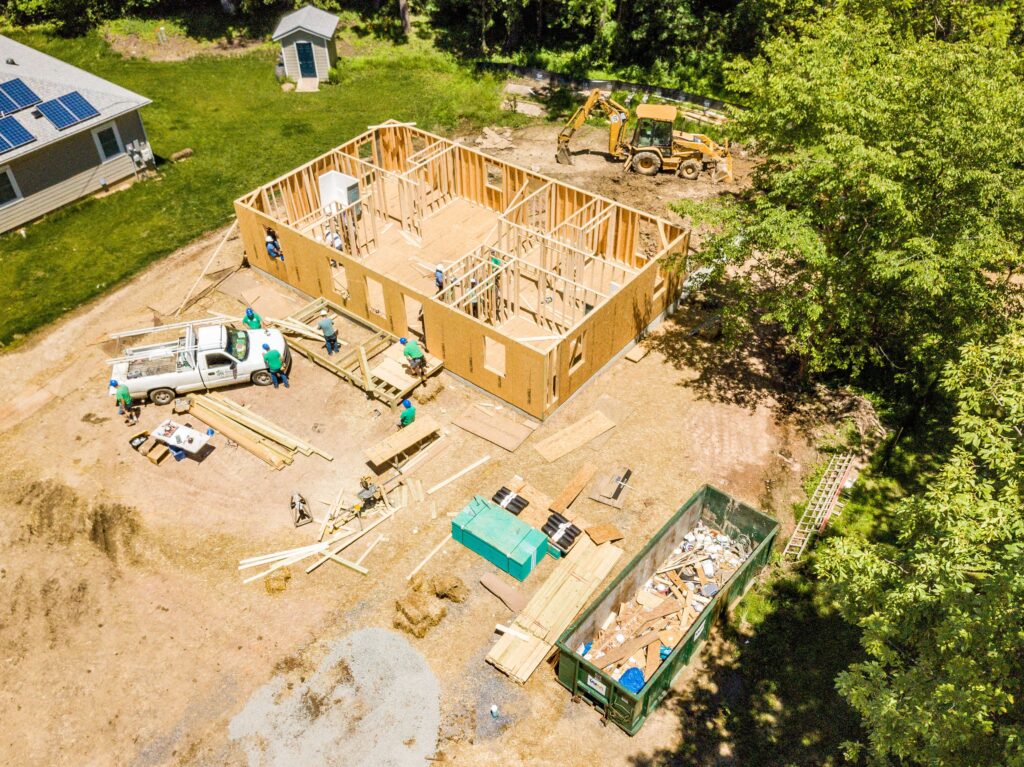
One of the main challenges for many affiliates is the resale of a Habitat home. Habitat often has the first right of refusal to buy back a home when it sells but, most of the time, it doesn’t make financial sense and it’s often cheaper to build a new home.
Habitat is often competing against commercial developers for available land, another significant challenge. “Affordable land is a challenge for our affiliate and is often a barrier to entry to home ownership,” says Neher, “Our goal is to build an inventory of affordable homes in the communities we serve. That’s where a community land trust comes into play.”
A land trust is a non-profit organization’s stewardship over a piece of land for the purpose of preserving it. In the case of Fauquier Habitat, established in 1991, they are the first Habitat affiliate to put together their own “Community Land Trust” in Virginia as a way to promote permanent affordability and a pathway to home ownership. Loudoun is also investigating this option.
With a community land trust, Habitat will buy a property and build a house. A mortgage is written for the home on the property and the land is leased to the homeowner for a nominal cost per year, which reduces the overall cost of home ownership.
“The exciting thing is that once that house sells, it doesn’t leave the inventory,” says Neher, “With the community land trust, we are able to build up an inventory of affordable homes that will remain affordable for the residents of Fauquier and Rappahannock County.”
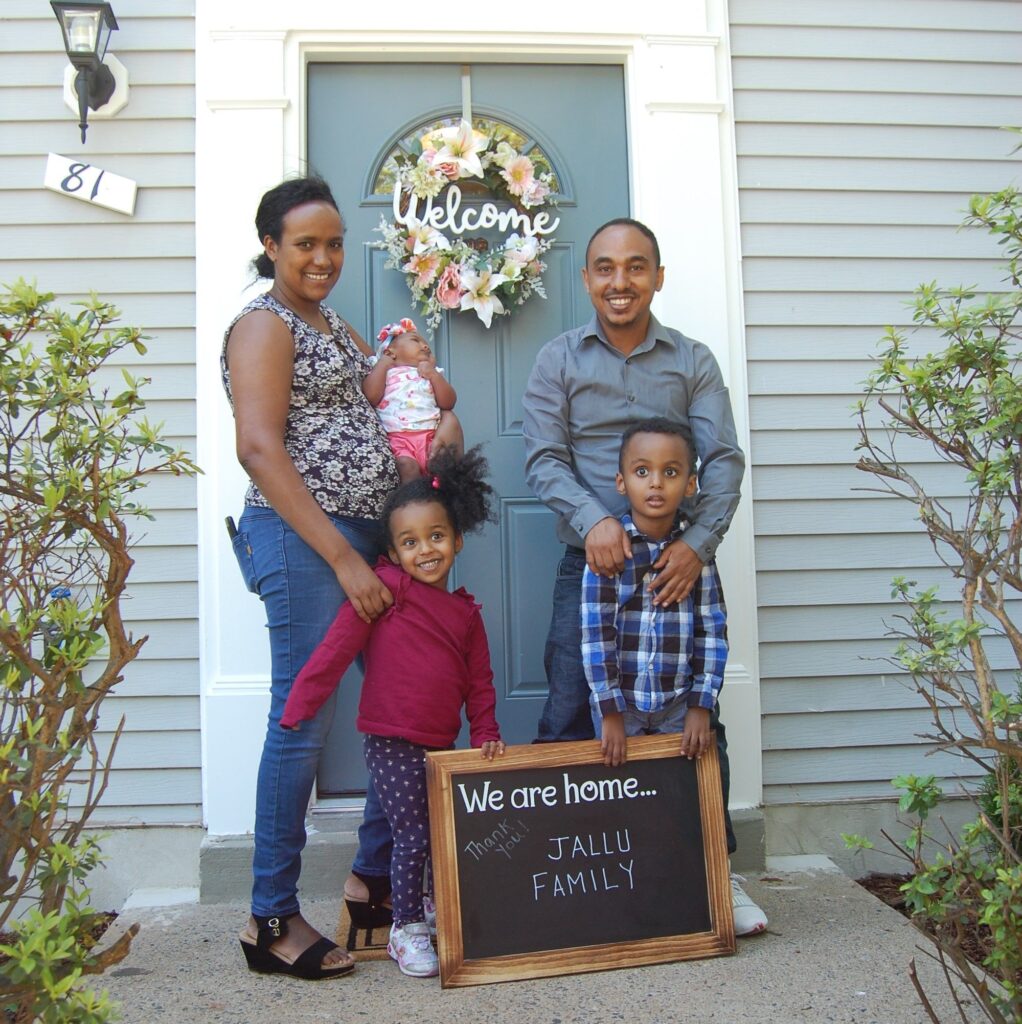
Jallu Family.
In order to achieve success, Habitat affiliates are largely reliant on community support, both volunteers and monetary donations. “I think that community piece is really important. I think that’s one of the differentiators of our non-profit,” says Murphy.
Women Build is a national Habitat program that operates differently in each affiliate. Fauquier Habitat’s Women Build built their first home in 2005 and with the leadership of all-women volunteers and associate director of development, Liz Rose, it has captured recognition with an innovative peer-to-peer fundraising model.
In the fall of 2019, the first team leader meeting was held to target young professionals to get involved. “We didn’t expect many people to show up, but 50 did,” says Rose, “From there, recruitment teams formed, some leaders recruited more than 30 people, and before long there were over 140 women signed up and a waiting list was created.”
Within five months, over $36,000 was raised with each volunteer raising a minimum of $250. “There’s a little bit of healthy competition and there’s such an amazing spirit behind this,” comments Rose. “That social connection is what makes the Women Build model powerful.”
The long-term goal for Women Build is to raise enough money to fully sponsor a home every year. “I look at a Habitat site as sacred ground,” says Neher. “[It’s] one of those places where differences melt away. You don’t know someone’s political affiliation, their religion, their income status but you know you’re standing next to a person building a home for someone who needs a safe and decent place to live…it’s sort of the great equalizer.”
Habitat for Humanity continues to be on the forefront of remedying the vast inadequacies of affordable housing locally and engaging the community.
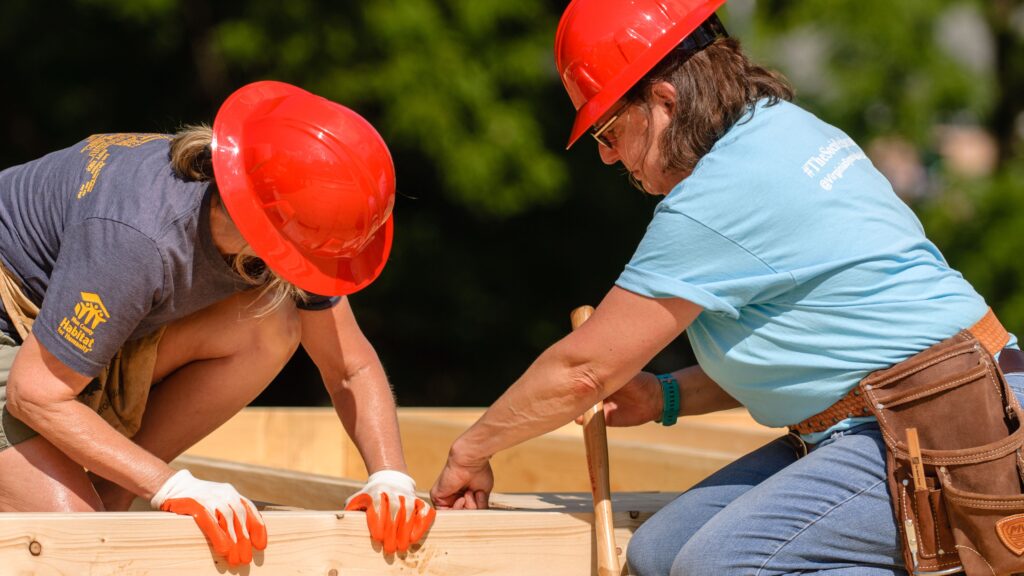
“Home is everything,” Neher states. “We’re coming to learn that more, especially in this environment of COVID-19. Home has become…our place of work. It’s where we find safety and stability. That’s what we’re after, to provide safe housing to people who live and work in the communities we serve…so they are able to experience home ownership, something so many take for granted.”
Monetary donations are gladly accepted by Loudoun and Fauquier affiliates. Programs are also set up for house, car, boat, land, and building supplies donations. Proceeds are tax-deductible and will help Habitat families build strength, stability and self-reliance in the U.S.
Additionally, Habitat ReStores are located in Chantilly, Leesburg, and Warrenton. Each of these independently-owned reuse stores accepts donations and sells home improvement items to the public at a fraction of the price.
To donate, find volunteer opportunities, or find more information, please visit loudounhabitat.org and fauquierhabitat.org. ML
This article first appeared in the June 2020 issue of Middleburg Life.


